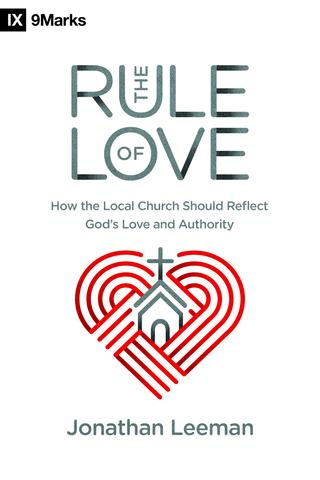⏱️ Estimated Reading Time: 4 min read
Submission and authority are hot topics these days. Tragically, however, most people are not flocking to read about it, let alone embrace this important reality. Jonathan Leeman explores this subject in his book, The Rule of Love. The subtitle nicely captures the essence of the book: How the Local Church Should Reflect God’s Love and Authority.
Leeman intends to help readers understand what love and authority genuinely are. As such, the primary goal of the book is to“refashion our views of God’s love and authority and their relationship together.” Also in play is the responsibility of the church to administer discipline in a biblically appropriate manner – and to maintain the crucial distinctive of love and authority. He says, “We need to remember something about love and rule that our ancestors in the garden forgot,” writes the author, “For God, love and rule aren’t two things but different aspects of one thing.”
So Leeman draws the attention of readers to the magnificence of God’s love. He demonstrates first that God’s first priority is himself. That is, God’s love is first and foremost is a God-centered love. The author adds, “The Father gives his righteousness and glory to the Son and delights in that glory above all. The Son, in turn, gives his righteousness and glory to the Father and delights in that glory above all.” Evidently, Christ did not think of us “above all” as the popular song suggests. Leeman refers to the God-centered love as the “archetypal boomerang of love.” Brilliant!
- This God-centered love has a series of massive implications for the church:
- God’s love motivates the church to evangelize and do good.
- God’s love motivates the church to identify church members and practice church discipline.
- God’s love motivates the church to teach and disciple the nations.
- God’s love motivates the church to worship.
- God’s love creates a distinct and holy culture.
Second, God’s love for sinners is described inglorious detail. At the heart of this discussion is how the Father sent the Son into the world to win his bride. Leeman includes a helpful discussion on what he calls contra-conditional love (as opposed to the unconditional love of God).I suspect that the author is building off the excellent work of David Powlison who has emphasized the same point in his book, God’s Love: Better Than Unconditional. ”Love” according to the author, is “affectionately affirming that which is from God in the beloved, and giving oneself to seeing God exalted in the beloved.”
The takeaways for the church are crucial:
- Making disciples must be uppermost in the church’s mission.
- Christians should be a people of compassion and justice.
- Christians should seek to display God’s glory in their lives together and apart.
- To belong to a church is to belong to a covenant.
Summary
The Rule of Love is a book that deserves to be read and studied by many. It is a book that should be read and re-read. The bottom line in a pluralistic and pragmatic culture: “To preach and teach is to exercise loving authority because it points people to God’s revelation. To disciple is to exercise loving authority because it seeks to see people conformed to the image of God. To evangelize is to participate in loving authority because it tells the nations that God is their Judge and King, and that he offers a way of pardon.”
The Rule of Love is a counter-cultural book that will challenge the unsuspecting to action and urge the unrepentant to be transformed. Walking away from this book unchanged is impossible. I recommend it highly!




